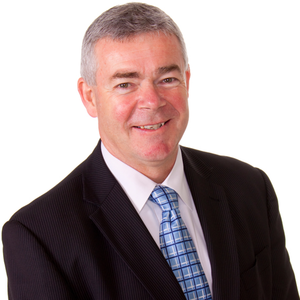Brisbane ‘beachhead’ for US medical device company’s Asian expansion
INNURVATION, a US medical device company, plans to establish a Brisbane headquarters to further develop its next generation capsule endoscopy pill and provide a springboard into the Australian and Asian markets.
Maryland-based Innurvation will bring its capsule endoscopy technology for the diagnosis of gastrointestinal (GI) disorders to Queensland for clinical trials and aims to establish local manufacturing, distribution and software development partnerships.
Innurvation CEO Cameron Plummer said the company’s Brisbane headquarters would focus on software development and clinical trials leading to its Australian and Asian launch.
“The beauty of Brisbane is that the city provides a stable and conducive business environment where we can access world-class medical research facilities to support the ongoing development of our capsule,” Mr Plummer said. “At the same time, Queensland is a beachhead for us to establish our Australian and Asian business moving forward.” 
Innurvation has signed an agreement with Catalyst61, a Brisbane-based technology incubator, which will see the medical imaging company operating in Brisbane by the end of 2016.
It is looking at an initial investment this year of around A$8-10 million, with assistance from the local market, and the creation of 20 to 30 jobs in knowledge-based professions, such as software, manufacturing and clinical trials.
“Through the activities of Think Queensland and Catalyst61, we will have the resources and capability here in Brisbane to quickly incubate, seek investment and bring to market our technology,” Mr Plummer said.
“Our advanced acoustic technology will transform the patient experience as it provides enhanced diagnostic capabilities without patient clean-out and will also encourage more people to seek to preventive care.
“As a result, this solution dramatically improves gastroenterologists productivity compared to a traditional endoscopy and capsule endoscopy competitors, and will lay the foundation for the first gastrointestinal dataset for population-wide diagnostic analytics.”
Catalyst61 CEO Tony Wood said the agreement with Innurvation would deliver ongoing investment and jobs to the Queensland economy.
“Innurvation believes its product has a market potential of up to $400 million in revenue over its first three years, and Brisbane will play a key role in the product’s market entry,” Mr Wood said.
“The city is also well positioned to benefit from Innurvation’s ongoing development of their next generation products that draw on its patented acoustic imaging technology.
“Innurvation is one of several companies our technology incubator Catalyst61 is currently working closely with. International companies are drawn to Queensland’s established infrastructure, location and business environment, and through Catalyst61 we’re helping them to rapidly commercialise their technology into export markets.”
ends

 How to resolve AdBlock issue?
How to resolve AdBlock issue? 






